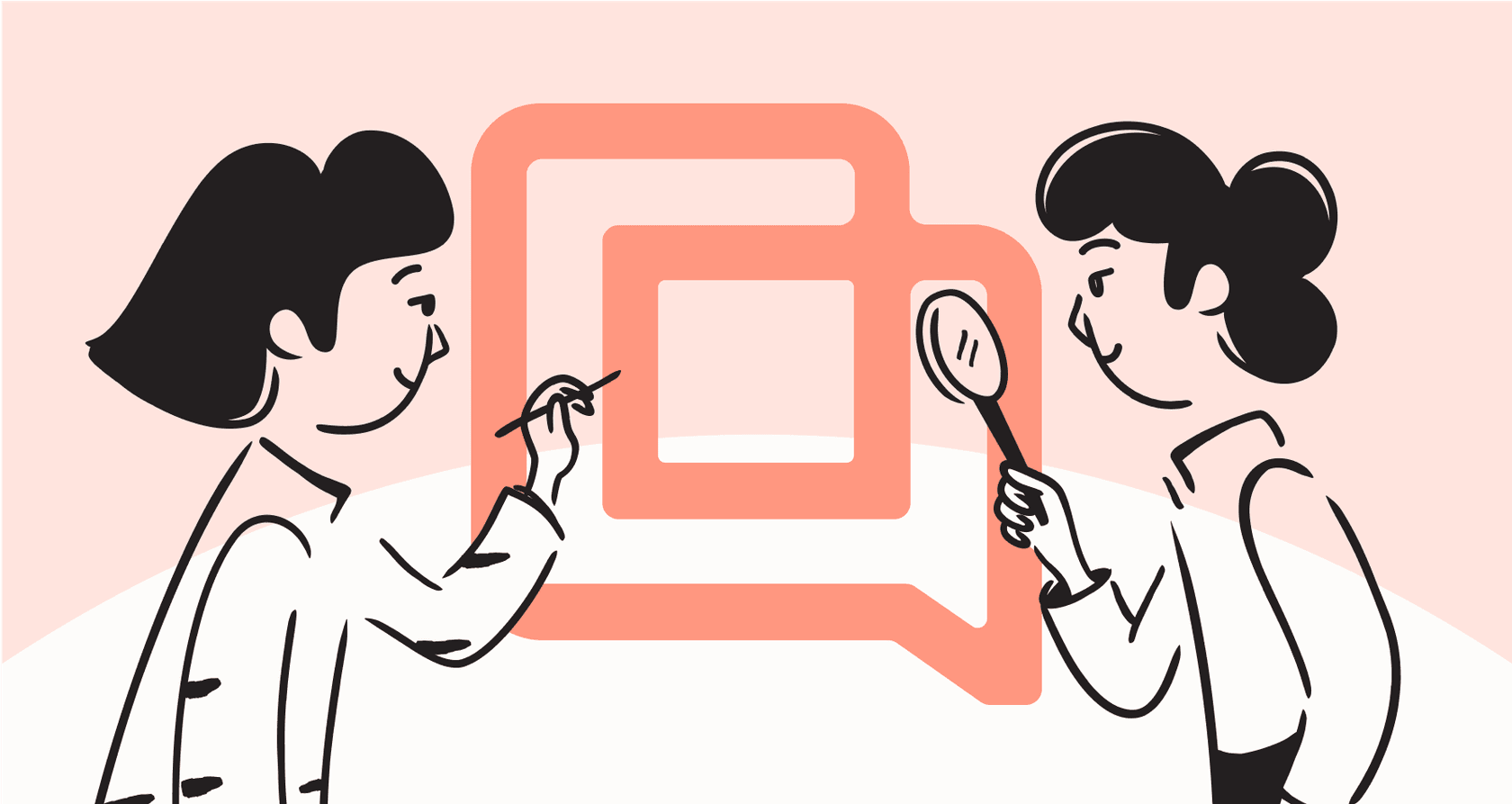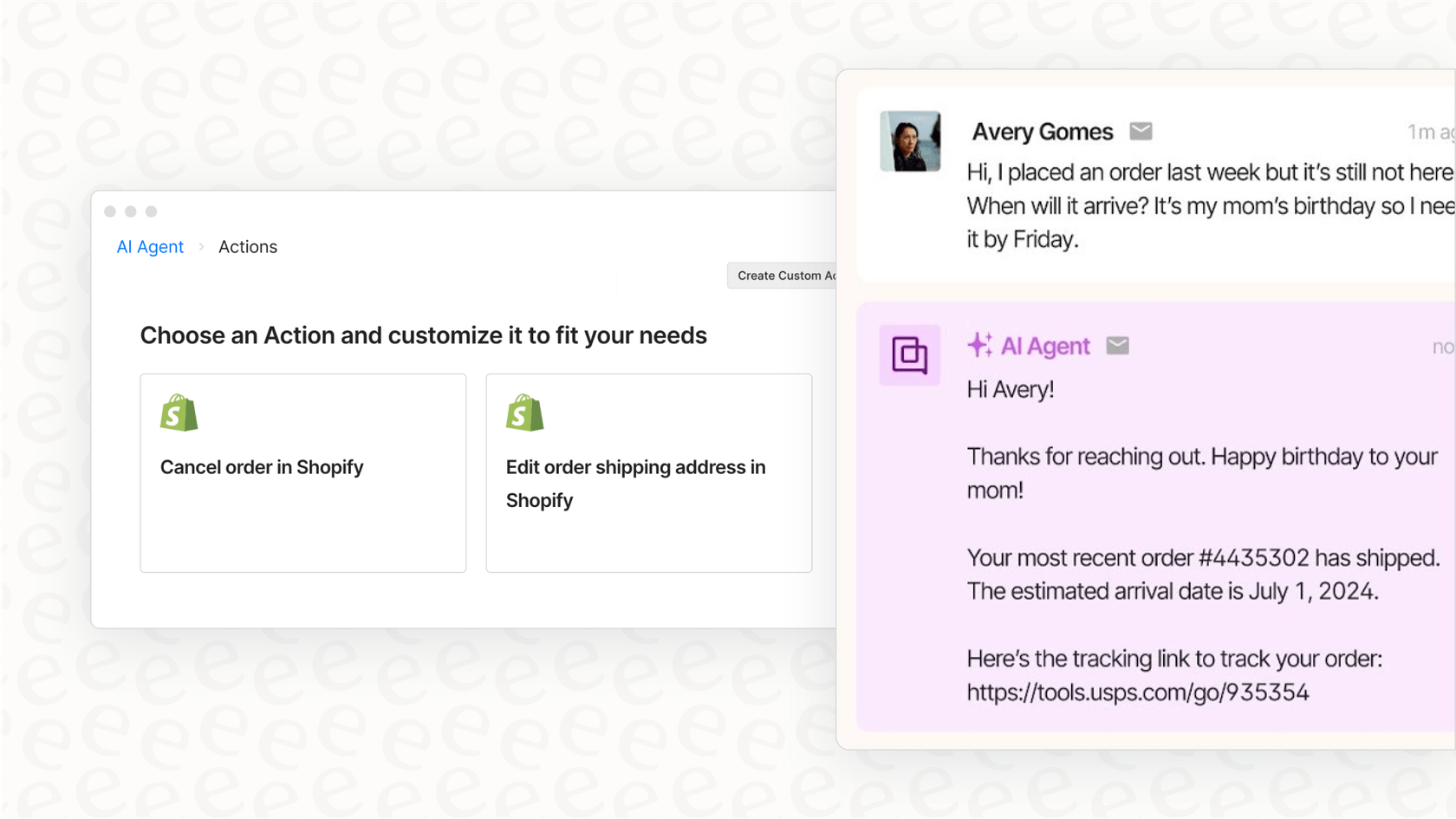A complete guide to Gorgias Facebook Messenger integration

Kenneth Pangan

Stanley Nicholas
Last edited January 16, 2026
Expert Verified

Let's be real: customer service isn't just about phone calls and emails anymore. Your customers are already on social media, which means you need to be there, too. For anyone running an e-commerce brand, that means being ready to chat on Facebook Messenger. It's where people ask questions, sort out problems, and sometimes, even decide to buy.
Gorgias, a popular helpdesk for online stores, is built on this idea. It's designed to pull all your customer conversations into one manageable place, and its connection with Facebook is a huge part of that. It’s a reliable and mature platform, and understanding how to best utilize its features and pricing will help you get the most out of it.
This guide will walk you through everything you need to know about the Gorgias Facebook Messenger integration in 2026. We'll cover what it does, how to set it up, what the pricing looks like, and some key considerations for scaling your support strategy.
What is the Gorgias Facebook Messenger integration?
In short, the integration connects your brand's Facebook page directly to your Gorgias account. This isn't just for private messages. It also pulls in public comments on your posts, mentions of your page, and even comments left on your Facebook ads. The whole idea is to turn your busy social feed into an organized queue of support tickets.
What is Gorgias?
First, a quick refresher on Gorgias. It's a customer service helpdesk made specifically for e-commerce brands. The whole point of Gorgias is to pull all your customer chats from email, live chat, social media, and more into a single dashboard. Its secret sauce for online stores is the ability to show customer data from platforms like Shopify right next to a support ticket. This gives your agents all the context they need without having to flip between a dozen different tabs to find an order number.

How the Gorgias Facebook Messenger connection works
When a customer sends your page a message or drops a comment on a post, the integration automatically creates a new ticket in Gorgias. Your support team sees it pop up in their queue and can reply directly from their Gorgias dashboard. That response then appears on Facebook just as if they’d sent it from the Facebook app itself.
One of the most useful tricks is being able to switch a conversation from public to private. Say a customer leaves a public comment about a missing package. Instead of having a back-and-forth for everyone to see, your agent can reply privately via Messenger to get sensitive details like an order number or address. It keeps the resolution professional and protects your customer's information.
Key Gorgias Facebook Messenger features and use cases
The Gorgias Facebook Messenger integration is more than a simple message forwarder. It plugs into the core Gorgias toolkit to help your team handle social media support efficiently.
Get all your Facebook messages in one spot
This is the biggest immediate benefit. No more jumping between Facebook's Business Suite, your email inbox, and whatever live chat tool you're using. Every Facebook DM, post comment, and ad comment lands in the same queue. This means you're far less likely to miss a message, and your team can work through everything in a logical order. It brings a great sense of organization to social media management.
Use automation rules and macros for faster replies
Gorgias lets you create "Rules" to handle simple, repetitive tasks automatically. For instance, you could set up a rule that spots any comment with the phrase "Where is my order?" and instantly replies with a link to your shipping tracker page. You can also use macros (which are basically saved replies) to answer frequently asked questions with a single click.
Turn public comments into private conversations
This is a huge deal for managing your brand's reputation. When a customer complaint pops up on a public post, you can quickly cool the situation down by moving it to a private message. It shows other customers that you're responsive while taking the specific details offline. It's also just good practice for protecting your customers' privacy, since you should never ask for an order number or email address in a public comment.
Leverage Gorgias' AI agent for basic automation
Gorgias also has its own AI Agent that can take care of some of the most common, repetitive questions, like order tracking or answering simple questions from your FAQ page. It's an add-on feature that handles a high volume of straightforward queries. This provides a high level of control over the customer experience, as its usefulness is tied to the automation flows you build.

Setting up and configuring the Gorgias Facebook Messenger integration
Getting the basic connection sorted is quite straightforward. You just go into your Gorgias settings, find the option to connect your Facebook business page, and grant all the permissions it asks for. Making sure you provide proper access is what allows Gorgias to pull in all your messages and comments correctly.
To really make the integration work for you, you can manually build out your automation rules and macros. This allows you to precisely define how you want your brand to respond to various inquiries. It’s an iterative process that helps you refine your support over time as new trends emerge.
It's a different approach compared to newer AI tools like eesel AI, where the setup is designed to be very hands-off. Instead of you writing every single rule, an AI like eesel learns directly from your past support tickets and knowledge base articles. You can connect it to your helpdesk and have a smart, context-aware AI agent ready to complement your Gorgias setup in just a few minutes.
Gorgias Facebook Messenger pricing: What you need to know
Gorgias has a usage-based pricing model, which offers flexibility for different team sizes. Your final bill depends on two main things: how many "billable tickets" your team handles, and if you use their AI, how many "automated interactions" it performs.
A "billable ticket" is any conversation that gets a response, whether it's from a human agent, an automated rule, or the AI. This ensures that you are paying for actual engagements handled. The AI Agent is a separate add-on, billed per interaction.
Here’s a quick look at their plans for 2026:
| Plan | Monthly price (billed monthly) | Included helpdesk tickets | Overage cost (per 100 tickets) | Included AI Agent interactions | Overage cost (per interaction) |
|---|---|---|---|---|---|
| Starter | $10/mo | 50 | $0.40 per ticket | 0 | $1.00 |
| Basic | $60/mo | 300 | $40 | 60 | $0.90 |
| Pro | $360/mo | 2,000 | $36 | 600 | $0.90 |
| Advanced | $900/mo | 5,000 | $36 | 2,500 | $0.90 |
| Enterprise | Custom | Custom | Custom | Custom | $0.90 |
Source: Gorgias Pricing Page. Prices are subject to change.
This model is designed so that your support capacity grows alongside your brand's success. If a post goes viral or you have a major sale, Gorgias scales with you. While ticket volume might increase during these periods, it reflects the successful growth of your customer engagement.
Considerations for scaling your Gorgias Facebook Messenger integration
While the integration is a powerful tool for centralizing your messages, there are some factors to consider as you scale your support with automation.
Managed, rule-based automation
Gorgias offers robust rule-based automation. You build a rule, and it works based on specific keywords or conditions you define. This gives you absolute control over the logic of your support. This allows you to cover various phrasing precisely, ensuring that your automated responses are always exactly what you intended. For teams looking to add more conversational flexibility, complementary AI tools can be added to the mix.
Managing costs as your brand grows
As we touched on before, Gorgias's usage-based pricing means that as you engage more customers, your investment in support increases. This model is very transparent, though it means budgeting for high-traffic periods is important. Many brands see this as a fair trade-off for a platform that handles their growing success so reliably.
Rule-based logic vs. self-learning systems
Gorgias's automation focuses on user-defined logic, which is excellent for precision. It ensures that your brand's specific protocols are followed to the letter. If you find your team is spending a lot of time manually updating these rules, you might consider adding a complementary AI layer that can learn from your historical data and past support tickets to provide even more context-aware responses.
Iterating on your automation
Refining your automation in Gorgias is a deliberate process. This ensures you have full oversight of every change made to your customer experience. While it doesn't currently offer a sandbox simulation for rules, its structured environment allows you to monitor performance closely as you roll out new workflows.
A smart way to enhance Gorgias Facebook Messenger: Add AI to your setup with eesel AI
Instead of replacing a reliable helpdesk your team already knows, you can enhance your Gorgias setup by adding a layer of advanced AI on top of it. eesel AI integrates smoothly with helpdesks like Gorgias to bring an intelligence and efficiency that complements rule-based systems perfectly.
Go live in minutes, not months
You can get started with advanced AI very quickly. With eesel AI, you can connect your helpdesk and knowledge bases easily and have an AI agent ready to help in minutes. The platform is designed to be completely self-serve, letting you see its value immediately as an addition to your Gorgias workflow.

Train on your past tickets for personalized, accurate AI
A great benefit of eesel AI is its ability to learn from your history. It can read through your historical support tickets in Gorgias to learn your brand's tone and most frequent customer issues. This means its responses are tailored to your business from the start, working as a highly capable assistant alongside your human agents.
Test with confidence in a powerful simulation
eesel AI helps you refine your automation strategy before going live. Its simulation mode lets you test the AI on thousands of your actual past tickets in a safe environment. You'll get an accurate forecast of its performance, giving you the confidence to scale your automation alongside Gorgias without any surprises.

Enjoy pricing that's actually predictable
Complementing Gorgias with eesel AI also brings more predictability to your budget. eesel AI's pricing is transparent, with plans based on feature tiers and generous monthly interaction buckets. This makes it easier to forecast your support costs even during your busiest sales months.
Choosing the right tool for your Facebook Messenger support
So, what's the final verdict? The Gorgias Facebook Messenger integration is a top-tier choice for centralizing your social media chats and using reliable rules to handle customer needs. It is a mature, trustworthy platform that powers thousands of successful brands.
If your goal is to offer highly intelligent, context-aware support that scales effortlessly, you can enhance the existing Gorgias framework with modern AI. This approach allows you to maintain the robust ecosystem of Gorgias while gaining the self-learning benefits of tools like eesel AI.
By adding eesel AI to your existing Gorgias helpdesk, you get the best of both worlds: the industry-leading dashboard your agents love, with a powerful AI engine to handle the heavy lifting. With its simple setup and predictable pricing, it’s a smart way to scale your support on Facebook Messenger and beyond in 2026.
Ready to see how AI can complement your support? Sign up for eesel AI for free and see how it can transform your customer service experience.
Frequently asked questions
The primary benefit is [centralizing all your Facebook customer interactions, DMs, public comments, and ad comments, into one unified Gorgias helpdesk. This ensures no messages are missed and allows your support team to manage everything from a single dashboard.
The integration turns public comments into support tickets and allows agents to respond directly. Crucially, it enables agents to move sensitive public conversations into private Messenger chats to resolve issues discreetly and protect customer information.
Gorgias allows you to set up automation rules and macros to handle repetitive inquiries efficiently. These rule-based automations can provide instant replies to specific keywords, like linking to a shipping tracker when a customer asks "Where is my order?".
Gorgias uses a usage-based pricing model, charging based on "billable tickets" (any conversation with a response) and "AI Agent interactions." This ensures you only pay for the volume your brand actually handles as you grow.
Gorgias's built-in automation relies on rule-based configurations that you define. This gives you precise control over your messaging. For teams seeking self-learning capabilities, Gorgias integrates beautifully with third-party AI tools like eesel AI.
Yes, you can integrate third-party AI solutions like eesel AI with your Gorgias helpdesk. These tools can learn from your past tickets and knowledge base, providing context-aware and personalized automated responses alongside your existing Gorgias setup.
Share this post

Article by
Kenneth Pangan
Writer and marketer for over ten years, Kenneth Pangan splits his time between history, politics, and art with plenty of interruptions from his dogs demanding attention.



